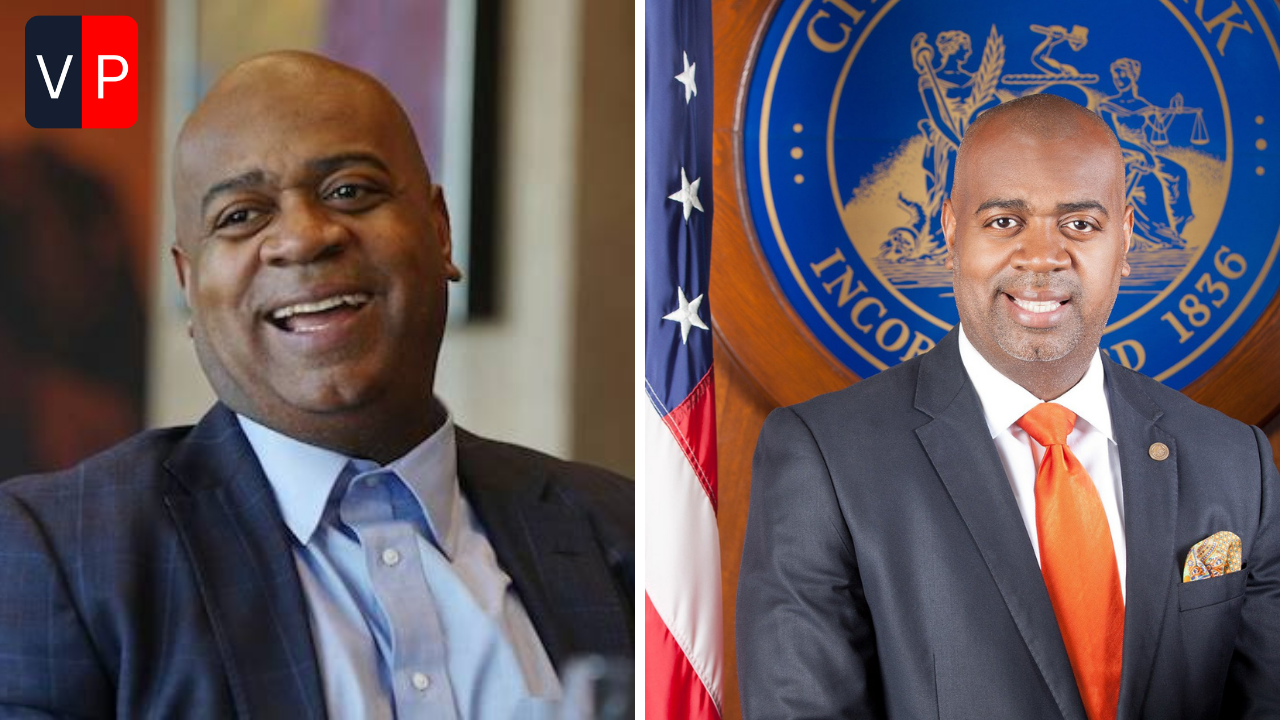Explore the events surrounding Newark Mayor Ras Baraka’s arrest at Delaney Hall ICE facility, the ensuing political tensions, and the broader implications for immigration policy in the U.S.

Introduction:
On May 9, 2025, Newark Mayor Ras Baraka was arrested outside the Delaney Hall Immigration and Customs Enforcement (ICE) detention center in New Jersey. The incident, involving federal agents and three Democratic congressional representatives, has ignited a nationwide discourse on immigration enforcement, states’ rights, and political accountability.
Who Is the Newark Mayor Involved?
Newark Mayor Ras Baraka “committed trespass and ignored multiple warnings” to leave Delaney Hall, a facility being run by Immigration and Customs Enforcement (ICE), according to acting US attorney for New Jersey Alina Habba.
Baraka was accompanied by three Democratic members of Congress who were not arrested. They say they were there to conduct “oversight” to ensure the facility was not violating any building safety ordinances.
Baraka told CNN he did not break any laws and was “exercising my right and duty as an elected official”.
Background: Delaney Hall and the Geo Group
Delaney Hall, a 1,000-bed ICE detention facility in Newark, is operated by the private prison company Geo Group under a $1 billion, 15-year federal contract. The facility’s reopening has been contentious, with Newark city officials suing Geo Group over permit issues and unauthorized renovations. The legal battle is part of a broader conflict over private immigration detention centers in New Jersey, especially following a 2021 state law banning such facilities—a law currently under federal appellate review.
The Incident: A Timeline of Events
Congressional Oversight Visit
On May 9, Representatives Bonnie Watson Coleman, LaMonica McIver, and Rob Menendez visited Delaney Hall to conduct an oversight inspection. Mayor Baraka accompanied them but was denied entry, as he is not a member of Congress.
Arrest and Confrontation
As Mayor Baraka was leaving the premises, ICE officers arrested him for trespassing, leading to a chaotic exchange that included alleged physical altercations. The congressional representatives accused Homeland Security officials of instigating the incident, stating that ICE agents escalated the situation unnecessarily.
Federal Response
The Department of Homeland Security (DHS) accused the congressional members of staging a politically motivated stunt. DHS spokeswoman Tricia McLaughlin stated that an investigation is ongoing and that more actions could be taken.
Political and Legal Repercussions
Mayor Baraka’s Stance
After his release, Mayor Baraka vowed to continue the legal fight against Geo Group, emphasizing Newark’s commitment to opposing the facility in court. He criticized the federal government’s noncompliance with local regulations and expressed concern about the facility’s lack of transparency.
Congressional Response
The involved congressional representatives condemned ICE’s actions, asserting their rights to conduct oversight and warning against federal overreach. They emphasized the importance of transparency and accountability in immigration enforcement.
Legal Challenges
Newark’s lawsuit against Geo Group highlights the ongoing tensions between federal immigration policies and local governance. The case underscores the complexities of jurisdiction and the challenges cities face when opposing federally contracted private detention centers.
Broader Implications for Immigration Policy
The incident at Delaney Hall reflects the intensified immigration enforcement under the Trump administration’s second term. Policies have included:
Rolling back protections for undocumented immigrants in sensitive areas.
Authorizing federal law enforcement agencies to assist in immigration enforcement.
Increasing ICE raids in sanctuary cities.
These measures have sparked nationwide protests and legal challenges, emphasizing the contentious nature of immigration policy in the U.S.
Conclusion
Mayor Ras Baraka’s arrest at Delaney Hall has become a focal point in the national debate over immigration enforcement, federal authority, and local governance. As legal battles continue and political tensions rise, the incident underscores the need for clear policies that balance national security with human rights and local autonomy.
Frequently Asked Questions (FAQs):
The mayor was arrested on allegations related to immigration violations. While full details haven’t been disclosed, such arrests typically involve infractions of federal immigration laws.
Yes. Holding public office does not grant immunity from legal processes. If credible evidence supports an arrest, officials can be detained and prosecuted like any other citizen.
Depending on local laws and the severity of charges, the mayor might be suspended, ask for a leave of absence, resign, or continue in office if cleared. The city council or deputy mayor often assumes interim leadership.
While arrests of public officials are rare, immigration enforcement targets individuals based on evidence of violations — not political positions. This case is unusual and under public scrutiny.
Trusted news sources such as [CNN](https://www.cnn.com), [The New York Times](https://www.nytimes.com), and official city statements on Newark’s government website offer ongoing coverage.
Note: This post aims to provide a thorough and authoritative summary for readers seeking clarity on this high-profile incident while adhering to factual integrity and credible sourcing.
References:
- BBC.COM : New Jersey mayor arrested in protest at migrant centre
- The Guardian : Trump officials ‘created confrontation’ that led to arrest of Newark mayor

